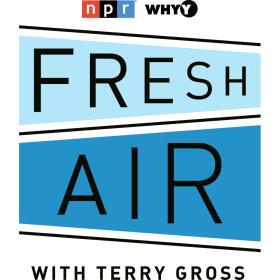
Fresh Air with Terry Gross
Weekdays at 11 a.m. and 6 p.m.
Fresh Air with Terry Gross, the Peabody Award-winning weekday magazine of contemporary arts and issues, is one of public radio's most popular programs. Each week, nearly 4.5 million people listen to the show's intimate conversations broadcast on more than 450 National Public Radio (NPR) stations across the country, as well as in Europe on the World Radio Network.
-
Journalist Amy Larocca says our society's obsession with optimization and self care has reached a fever pitch. She unpacks what it really means to take care of ourselves in How to Be Well.
-
ProPublica health care reporter David Armstrong has multiple myeloma. He says a single pill of his prescription costs the company just 25 cents to make — but costs him about the same as a new iPhone.
-
Ian had her first hit record as a teenager in the 1960s and went on to win two Grammys. A new documentary tells her life story through a combination of vintage footage and newly recorded interviews.
-
Back in March, a group of comic luminaries — from John Mulaney to Nikki Glaser — gathered at the Kennedy Center to celebrate O'Brien for receiving the Mark Twain Prize for American Humor.
-
Youssef was in fifth grade and living in New Jersey when the Twin Towers fell. His new show, #1 Happy Family USA, draws on the experiences of his own Egyptian American family during that tense time.
-
McBride, a Georgia native, has seen how Hollywood traffics in stereotypes about the American South. His HBO show satirizes televangelists without making religious people the butt of the joke.
-
Crumb's comics were staples of 1960s counterculture. He's now the subject of a new biography. Crumb spoke to Fresh Air in 2005, and again, with his wife, fellow comic Aline Kominsky Crumb, in 2007.
-
Thunderbolts* is unapologetically formulaic. And yet, Florence Pugh is terrific; the action is coherent; and the character dynamics strike the right balance of earnest sincerity and glib humor.
-
When Amanda Hess learned her unborn child had a genetic condition, she turned to the internet — but didn't find reassurance. "My relationship with technology became so much more intense," she says.
-
When do compromises turn into full-blown capitulation? Daniel Kehlmann's new novel draws on the true story of German film director G.W. Pabst.






